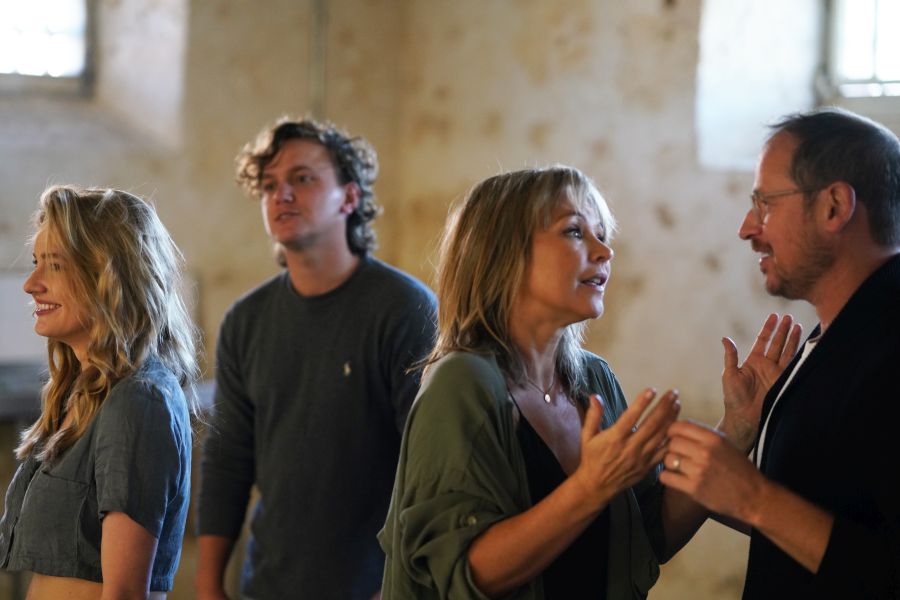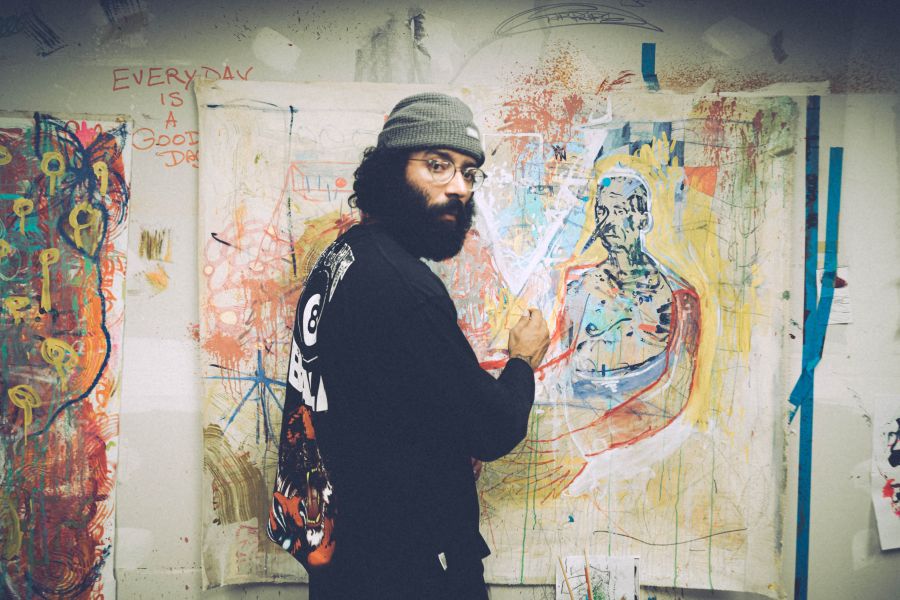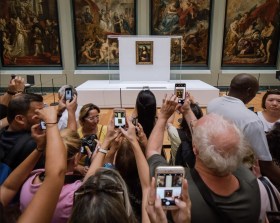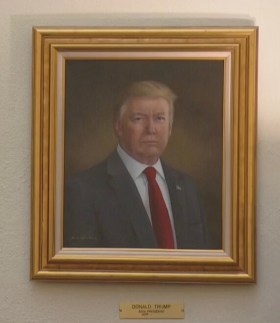‘Can an artist do anything if they’re happy?’
So asked the renowned writer Aldous Huxley in a catchcry that has been shared by artists and non-artists alike, and which has contributed to widespread perceptions of creative work as being fuelled by pain and suffering.
But could these ideas about the angst and sadness that are supposedly required to be a ‘real’ artist be doing more harm than good? Where’s the hard evidence to prove this well-known narrative is true?
Creatives and depression: no simple answers
The first thing to say on this subject of depression (and of mental illness in general) is that it is an incredibly complex area.
There are vast numbers of variables underpinning these conditions, and they can manifest in very different ways depending on the person’s personality, past experiences and current life circumstances (among other factors).
It’s therefore a risky business to make generalisations around the causes and effects of mental illness or to make claims around which kinds of people in society are most prone to these conditions.
Nevertheless, when it comes to artists’ propensity towards mental ill health, many of us continue to endorse this ‘emo-artist’ picture as true and follow it with a sense of blind faith.
But looking below the surface at the range of scientific and empirical studies in this area, you begin to realise it’s a patchy picture, full of largely unremarkable results.
Read: Am I depressed, or just over it?
For example, a study from 2001 (cited in the Cambridge University textbook Creativity and Mental Illness), found that when psychologists studied patients who were hospitalised with varying degrees of mental illness to test whether the severity of their illness correlated with their levels of creativity – the results showed absolutely no links. (Evidently, it found the people categorised as having medium-level mental illness scored highest on the creativity radar.)
This case aligns with many others that have failed to prove any distinctive links between creativity and mental illness.
It’s an idea also backed up by US psychologist Dr Judith Schlesinger, who devoted an entire book to debunking the manic-artist theory. Her text The Insanity Hoax: Exposing the Myth of the Mad Genius (2012) argues that ‘despite the efforts of numerous investigators and decades of confident pronouncements by a few, there’s still no concrete, empirical proof that highly creative people are any more likely to be mood-disordered than any other group’.
And while some studies exist that claim that creatives are more likely to suffer conditions like bipolar disorder and schizophrenia – it seems there are still no definitive answers, and no consensus on whether artists are in fact more prone to depression than others in the general population.
Are we confusing artists with depression with those who’ve found strength in the arts?
As academic debates on this theme continue to play out, perhaps a more instructive way to approach the subject is to flip the question on its head.
Instead of looking for any innate depressive tendencies in artistic types, could it not be more useful to look at these creatives’ attraction to the arts as a way to work through emotional pain or trauma?
Renato Fabretti is Artistic Director of Fremantle Theatre Company (FTC) – a WA theatre company dedicated to presenting high-calibre work for local audiences and supporting artists with a range of professional creative opportunities.
Since launching in 2020 the company already has a number of quality productions under its belt, including a 2021 season of Reg Cribb’s Last Train to Freo and a 2022 co-production with Perth Festival of Mary Stuart by Kate Mulvany.
Read: 6 podcasts for better mental health
Fabretti tells ArtsHub the company’s latest production of British playwright Lucy Prebble’s work The Effect – which follows two people who are part of a medical trial of a new antidepressant drug – is a good chance to encourage more open dialogue around mental health issues, not just for artists, but for everyone in the community.
The Artistic Director says that he tends to view the idea of artists being more prone to depression as being largely misunderstood. He says, ‘People forget that artists are people, just like everyone else! And anyone can experience periods of depression or sadness at some point in their lives.
‘So, I don’t think there is anything particularly remarkable about artists that set them apart in that way. If anything, it is the difficulty of surviving in the sector that puts existing mental health under more strain.’
Though Fabretti also admits that he sees something distinctive about the arts in terms of what it can offer people who may not necessarily fit societal norms.
‘The arts definitely attracts, and indeed welcomes, people whose skill sets may not align with the mainstream,’ he says.
‘I think that’s a really positive thing, because it allows those people to thrive in ways they might not otherwise be able to,’ he continues.
‘So, I actually think we should be talking more about those positive aspects of what the sector offers people, in terms of it being a safe place for people who may have had painful experiences, a powerful place for the neurodivergent, and being a place that helps them not only work through that, but thrive.’

Mental health and depression danger zones for arts professionals
Pippa Grandison is a veteran Australian actor whose credits include roles in Muriel Wedding and the recent ABC/Sky Max series Frayed. She is currently working alongside Fabretti as the Director of FTC’s production, The Effect.
As a long-time arts professional who lives with anxiety and depression herself, Grandison’s thoughts on this theme are revealing.
While the actor and director agrees with Fabretti that the arts can be a safe landing place for people who may have had past traumas (‘you hear quite a few people talk about troubled childhoods in the arts’), her experience has also taught her about some particular mental health hazards that go hand in glove with arts work (especially in the performing arts).
1. You’re always on the hustle, and precarious work breeds anxiety
Grandison says that one of the most obvious reasons artists may be more prone to mental ill health is that their employment situations are notoriously inconsistent and insecure.
‘The arts in Australia are just not as well-supported as they are in places like Europe. There is a lot less money here, and we’re always down on one knee begging for the funding,’ she says.
‘So of course that kind of precarity is going to make you anxious about when the next job is coming.’
2. The adrenaline factor can push artists into fight or flight mode
Grandison also believes that, especially for actors and performers, the huge rushes of adrenaline involved in live performance work could make those professionals more susceptible to feeling mentally unwell.
‘Do you know that the rush of adrenaline experienced by live performers is up there with fighter pilots in terms of its intensity?’ she tells ArtsHub.
‘So I think that that routine of live performance, if it is repeatedly pushing you into that fight or flight mode – that can certainly trigger mental ill health.’
3. Artists’ work can take them to dark places
Another factor Grandison believes may be behind some artists’ depressive periods is the nature of their work – which can involve heavy subjects.
‘I know I’ve played some pretty disturbed characters in my time,’ she says. ‘So if you’re someone who has experienced disturbing events or traumas, that kind of work can be very triggering.’
How well is the sector supporting artists’ mental health?
Finally, when Grandison reflects on how well she thinks the Australian arts sector is currently doing in terms of supporting those in the arts who are experiencing mental ill health, her thoughts signal how far the sector has come over time.
‘There is more support available now, definitely,’ she says. ‘It’s also a more open conversation than in the past, and we are talking about it without fear of being seen as weak.’
Read: Support Act Wellbeing Helpline expands to include all artists and arts workers
Grandison adds that, in the early days of her career, some companies would include audition form questions asking whether the actor suffered from panic attacks or other mental health conditions.
‘You’d always ask yourself, should I disclose that? Because if I do, I probably won’t get cast,’ she says. ‘But now, those questions are less relevant, and many companies have psychologists available for cast and crew.
‘That said, I think there is more work to be done,’ she continues. ‘We should soon get to a point where mental healthcare policies are more embedded in every company.
‘But we’ve come a long way since I started, and it’s moving in the right direction,’ Grandison concludes.
For crisis and suicide prevention support, contact Lifeline‘s 24-hour crisis line on 13 11 14. For more information and help with depression contact your doctor or Beyond Blue. For arts-specific support call Support Act’s Wellbeing Helpline on 1800 959 500.





